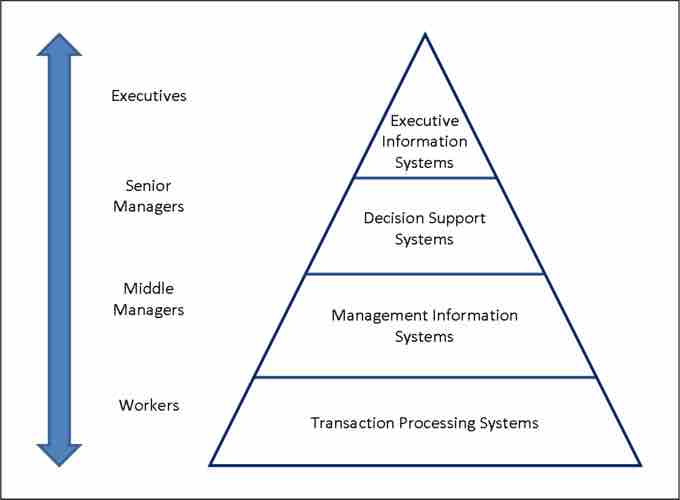
The team manager oversees a group. They balance their workload and complete tasks on time. They also deal with conflict between team members and provide constructive feedback. The most successful managers know how to balance their work with their team members' needs. These traits make team leaders effective. They are able to motivate and improve the morale of their team members.
Leadership skills
Leader skills are essential for team managers to be successful. Leaders must be strategic thinkers and able to translate organizational long-term goals into tangible results. Leaders who lack this skill will cause problems for the organization. They will lose sight both of the importance and the role of their team in the organization. A leader who is able to think strategically must look beyond the immediate issues in order to see the organizational goals and the complexity of internal and externe factors.
Leaders must be approachable and willing to have conversations with their team. Leadership requires open listening. It shows that you can understand others' viewpoints and listen to them before you decide what to do. This skill allows you motivate your team and to acknowledge their input.

Communication skills
Communication skills are critical in the workplace as well as in managing a team. A lack of communication skills can be a significant barrier to an organization's success. Gatehouse found that communication problems between managers were the most common cause of poor internal communication. Only 14% of employees reported feeling inspired by their performance review. To overcome this problem, managers should understand how to engage their team members and build relationships. This can be achieved through effective listening and clarifying of their team members' views and ideas.
Communication with people should be straightforward and honest. Some employees prefer detail while others prefer generalization. Knowing which communication style your team prefers will help you adjust your communication style. The more attention you pay to your team's communication preferences, the more likely they will feel that they are heard and understood.
Skills for organizational management
If you want to lead a team, organization skills are essential. These skills help you to manage time, people, and conflict. You will appear more trustworthy and credible if you can prioritize tasks and are organized. When you have organizational skills, you can analyze complex issues and come up with solutions. Being organized helps you to remain calm under pressure.
Having better organization skills will also help you communicate better with your team. Being organized will help you save time and focus on the most important tasks. If your workspace becomes cluttered, it can make it difficult to focus on your work, which can lead you to more stress. Rewriting your to-do lists is a great way to organize your workspace.

Time management
The key to team management is time management. This includes regular check ins and the use or tools to track the status each project. Encourage team members to be productive, and celebrate their achievements. It is possible to maximize productivity in your team by learning good time management and avoid overload.
Your company's success depends on how big or small your staff is. You must be flexible enough and able to adapt to changing situations in order to develop a time management strategy. This can be achieved by aligning your teams. Studies have shown that team members spend almost three-quarters of their time communicating and connecting. Inefficient communication also accounts for 15% of employees' lost work time.
FAQ
How to effectively manage employees
The key to effective management of employees is ensuring their happiness and productivity.
It also means having clear expectations of their behavior and keeping track of their performance.
Managers need to establish clear goals for their team and for themselves.
They need to communicate clearly and openly with staff members. They should also ensure that they both reward high performers and discipline those who are not performing to their standards.
They should also keep records of all activities within their team. These include:
-
What did we accomplish?
-
How much work were you able to accomplish?
-
Who did it?
-
How did it get done?
-
Why was it done?
This data can be used to evaluate and monitor performance.
What do we mean when we say "project management"?
It refers to the management of activities related to a project.
We help you define the scope of your project, identify the requirements, prepare the budget, organize the team, plan the work, monitor progress and evaluate the results before closing down the project.
How can we create a culture of success in our company?
A successful company culture is one that makes people feel valued and respected.
It's based on three main principles:
-
Everyone has something to contribute
-
People are treated with respect
-
Individuals and groups can have mutual respect
These values are reflected by the way people behave. They will treat others with kindness and consideration.
They will respect other people's opinions.
They can also be a source of inspiration for others.
The company culture promotes collaboration and open communication.
People can freely express their opinions without fear or reprisal.
They know that they will not be judged if they make mistakes, as long as the matter is dealt with honestly.
Finally, the company culture encourages honesty as well as integrity.
Everybody knows they have to tell the truth.
Everyone knows that there are rules and regulations that apply to them.
Everyone does not expect to receive special treatment.
What are the steps involved in making a decision in management?
Managers have to make complex decisions. It involves many factors, such as analysis and strategy, planning, execution, measurement, evaluation, feedback etc.
The key thing to remember when managing people is that they are human beings just as you are and therefore make mistakes. As such, there is always room for improvement, especially if you're willing to put forth the effort to improve yourself first.
In this video, we explain what the decision-making process looks like in Management. We will explain the importance of different types decisions and how every manager can make them. The following topics will be covered:
What are some common management mistakes?
Managers sometimes make their own job harder than necessary.
They may not assign enough responsibilities to staff members and provide them with inadequate support.
Managers often lack the communication skills necessary to motivate and guide their teams.
Some managers set unrealistic expectations for their staff.
Managers may prefer to solve every problem for themselves than to delegate responsibility.
How can a manager enhance his/her leadership skills?
You can improve your management skills by practicing them at all times.
Managers should monitor the performance and progress of their subordinates.
You must quickly take action if your subordinate fails to perform.
You must be able to spot what is lacking and how you can improve it.
How does a manager motivate his/her employees?
Motivation refers to the desire or need to succeed.
It is possible to be motivated by doing something you enjoy.
Another way to get motivated is to see yourself as a contributor to the success of the company.
For example, if you want to become a doctor, you'll probably find it more motivating to see patients than to study medicine books all day.
Another source of motivation is within.
For example, you might have a strong sense of responsibility to help others.
Maybe you like working hard.
Ask yourself why you aren't feeling motivated.
Then try to think about ways to change your situation to be more motivated.
Statistics
- The average salary for financial advisors in 2021 is around $60,000 per year, with the top 10% of the profession making more than $111,000 per year. (wgu.edu)
- The profession is expected to grow 7% by 2028, a bit faster than the national average. (wgu.edu)
- Hire the top business lawyers and save up to 60% on legal fees (upcounsel.com)
- Our program is 100% engineered for your success. (online.uc.edu)
- The BLS says that financial services jobs like banking are expected to grow 4% by 2030, about as fast as the national average. (wgu.edu)
External Links
How To
How do you get your Six Sigma license?
Six Sigma is an effective quality management tool that can improve processes and increase productivity. It is a process that helps businesses achieve consistent results in their operations. The name comes from the first two letters of the Greek word "sigmas" which mean "six." Motorola invented this process in 1986. Motorola realized they needed to standardize the manufacturing processes to produce products faster and cheaper. They had been having problems with consistency because of the many different people who were doing the work. They decided to use statistical tools like control charts and Pareto analysis to solve the problem. They would then apply these techniques to all aspects of their operation. So, after applying this technique, they would be able to make changes where there was room for improvement. There are three main steps to follow when trying to get your Six Sigma certification. First, you need to determine if your qualifications are valid. Before you take any exams, you'll need to take some classes. After you have passed the classes, you can start taking the exams. You'll need to go back and review all the information you received in class. After that, you can take the test. You will be certified if you pass the test. And finally, you'll be able to add your certifications to your resume.